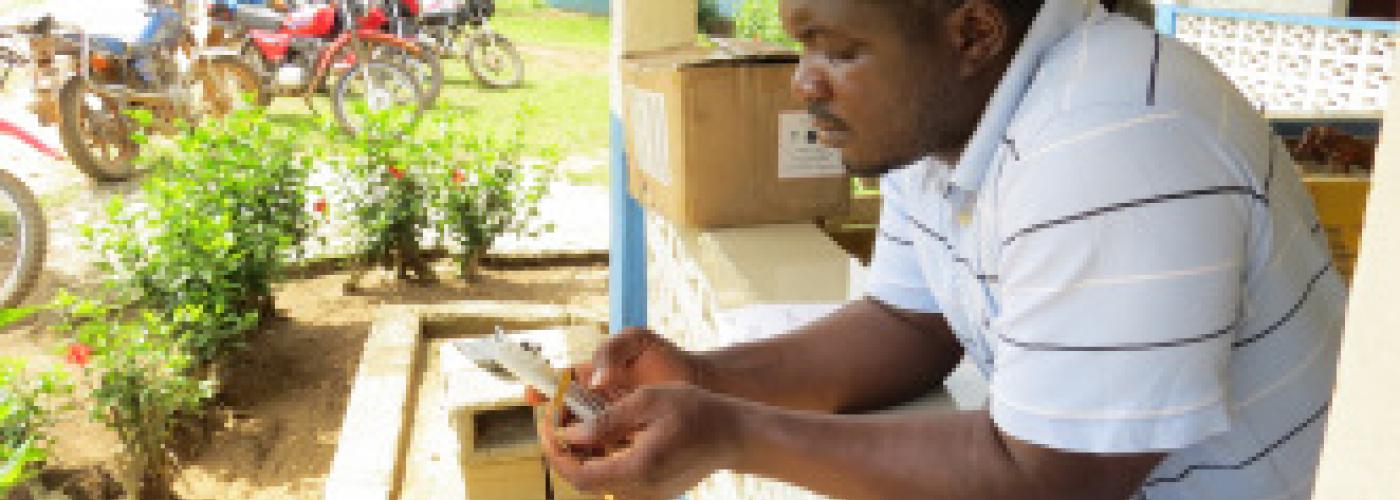Will Market Competition Translate to Improved Mobile Money Service and Outcomes in Liberia?
Image

This post was originally published on mSTAR's blog.
Market competition can offer benefits such as improved pricing, options, service points, and coverage. This is no less true among mobile financial service providers. For example, since mobile financial services launched six years ago in Bangladesh, the dominant provider, bKash, has lead the pack with over 24 million subscribers but over 10 banks and additional third party providers also contribute to the market. In Tanzania, M-Pesa entered the market in 2009 and still holds the highest market share at 42 percent, but there are now five competitors driving development of the digital financial services ecosystem.
Compared to counterparts in East Africa, Liberia is relatively new to mobile money. Lonestar MTN, one of the largest mobile network operators (MNO) in Liberia, debuted their mobile money product in 2011. Orange Money, the only other mobile money provider (formerly Cellcom’s Smile Mobile Money), launched in February 2016 and has since expanded from Monrovia to 13 of 15 counties. Combined, the two providers have over 1.6 million subscribers. For a nation of 4.6 million, mobile money has shown significant growth.
While Liberians use mobile money primarily for person to person transfers (P2P), the Mobile Solutions Technical Assistance and Research (mSTAR) project supports the Government of Liberia in offering government to person (G2P) payments. mSTAR assists the Ministry of Education and Ministry of Health in rolling out mobile money payments to civil servants on a county-by-county basis. To date, 2,544 Education staff and 803 Health staff enrolled in this option in 12 counties.
In Liberia, financial inclusion is challenged by factors such as banks that are often difficult to access. Wire transfer fees to send money to family across the country that are prohibitively high. Mobile money attracts customers by avoiding these challenges. Customers can send and receive money on their phone and cash it out at a nearby agent for a small fee while avoiding poor roads to the bank, system outages, and long lines.
Despite mobile money’s many benefits, the system is not without its flaws. While Liberia’s capital city, Monrovia, experiences fewer issues, other cities and especially rural areas find challenges that include a lack of cellular connectivity (a mobile transfer is of little use if the phone cannot connect to send/receive) and liquidity shortages (mobile money requires that the agent has enough cash on hand to pay the customer). These issues are exacerbated by power shortages and underdeveloped infrastructure such as bad roads, some of which are unnavigable during the April-November rainy season, which constrains liquidity. Liberia is a nascent mobile money market with a very recent second entrant. The market is becoming competitive but competition has not yet taken off and incentives to drive product, service and price improvements are still limited.
While cellular coverage is similar between Lonestar and Orange throughout the country there are also areas only covered by one provider where users often have one SIM rather than one for each, as is common in well-covered areas. This has been difficult for G2P payments rollout because the GOL has only offered civil servant salary payments with Lonestar since Orange did not have the national presence required to participate. Civil servants who want to switch to mobile money payments but live in areas without Lonestar coverage frequently complained about the lack of options. To address this problem, in November 2017 the GOL officially brought Orange in as a second provider authorized to transmit government salary payments. This is celebratory news for civil servants and the development of Liberia’s digital financial services ecosystem.
…in November 2017 the GOL officially brought Orange in as a second provider authorized to transmit government salary payments.
At the start of the salary payment program, mSTAR supported the GOL in facilitation of negotiations and development of two memoranda of understanding with Lonestar, which allowed the GOL to offer Lonestar mobile money as a payment option. In the same vein, mSTAR has worked with the GOL to come to a similar agreement with Orange. mSTAR has provided data used in decision making and technical support to conceptualize rollout of mobile money salary payments. The new Orange MOU will allow market competition for G2P salary payments for civil servants.
An increase in service providers and market competition will benefit civil servants who will be enabled to select their provider of choice. The competition should drive down prices and increase service points. It can be expected that as service improves, mobile money will be an option for more Liberians and mobile money agents will have a larger customer base. Competition can move to different aspects of service delivery beyond network coverage and pricing, such as payment product integration and user friendliness, innovation around new financial products and services to promote financial inclusion and value-added services such as market and weather information and health messaging.
Competition, as seen in other digital financial service markets like Bangladesh and Tanzania, is integral to growth and the launch of additional financial opportunities. Will competition in Liberia result in new and diverse products? Additional market entrants? Effective interoperability? Broader financial inclusion for the 72 percent still unbanked adult population? There is optimism that this is what the future could bring. In the short-term it is apparent that Liberia is headed in the right direction.

